 Although posting way later than usual, I wanted to share with you pieces of a conversation I had tonight with the stake presidency counselor responsible for the singles in my stake. My intention in seeing him was to discuss some negative emotions I’ve experienced from my service on the stake singles committee. He was very gracious in hearing me out. I was very grateful this priesthood leader released me from my calling (which actually felt more like an assignment since it was never announced in any public meeting) on the stake singles committee. Home teachers are important At the heart of my tension were differences regarding a vision for ministering to singles. I’ve blogged previously about my perspective on how to minister to singles. Here’s the other perspective that made me look for my duct tape. Because home teachers in individual wards have the responsibility to minister to singles, we don’t want to duplicate what’s already in place. I agree that home teachers should be the primary means of ministering to individual members, regardless of their situation in life. I also see the reality: The majority of priesthood holders don’t go home teaching, and most who do have no clue how to meet the needs of singles. So where does that leave us? With many singles suffering needlessly from unmet needs. I very frankly confessed I don’t feel I have any support from either my ward or my stake. I don’t even know who my home teachers are. Here’s part of the response I received. The stake singles committee chairperson has confessed at meetings I don’t attend how much she cares about me and wishes I could be made to feel better. My response? If the committee chairperson really feels that way, she should show it. Call me up and ask me how I’m doing. Text me. Email me and ask what you can do to help. Or better yet, come visit me in my home. Do something to help me feel loved. Saying you care where I’m not there to hear it won’t help me feel loved. Admittedly, this individual may struggle with some of those active options, maybe even all of them. And we all express love differently. So in this person’s world, simply voicing what she feels may mean a great deal and have its own validity. That’s completely understandable. It still leaves my needs unmet. And when the rubber hits the road, that’s what really counts. Dealing with injustice One part of the conversation I had with my priesthood leader that I really want to share is the role the Atonement plays in reference to injustice. This world is filled with injustices. My priesthood leader frankly labeled my singleness as one of them. It’s just plain wrong that someone who’s continued to sacrifice and remain true for so long when many others abandon the faith should be denied the righteous blessings of family life. Not that I’m any model of perfection, but me being single is just not right. I’m sure that many other singles could voice their own injustices. Yet God operates by law, one of which provides for compensation. The Atonement provides blessings now to help us deal with our present injustices while also providing blessings in the future. And when all those future blessings have arrived, they will outweigh by far any pain or sorrow that we experience now from injustice. I believe that wholeheartedly. Those blessings are all around all of us. We just need eyes to see them. Swallowed up in Christ I don’t feel I have any support from my ward or my stake, but I do very much feel I have support from my Savior. How very grateful I am that my Lord shed drops of blood for me! The cross He carried bore weight from me — my sins, my mistakes, my shortcomings, my failings, my sorrows, my pains, and my injustices. Alone that burden will surely crush me. But in Him I can do all things.
I know I’m not worthy, but that’s why it’s called mercy. And it’s not just for me. It’s also for others with whom I disagree. I don’t believe the stake singles committee members are bad people or that their heart isn’t in the right place. Nor do I believe that the way they choose to serve lacks validity or value for some. But I just can’t get on board their train. So I’m glad that I received an honorable release (yes, that word honorable was used with the next word release). Now I can release the negative emotions that always filled me at those monthly meetings. And I can focus on exerting my influence in positive ways so that I’m a bigger part of the solution.
0 Comments
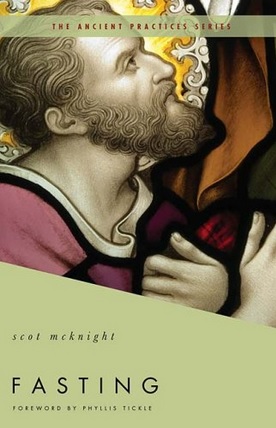 Putting me in a bookstore is like putting an alcoholic in a bar — we’re both going to get something. The bargain book rack touches a special weakness. I mean, what’s better than getting something you love for a really great price? That’s where I found Fasting by Anabaptist theologian Scot McKnight. While we undoubtedly diverge on topics like priesthood authority, for example, would we do so on fasting? For $3.00, if the venture proved worthless, I wouldn’t be in the hole for that much. That initial investment paid huge dividends. I didn’t agree with everything McKnight had to say. But his main argument really made me rethink my approach to fasting. McKnight decried what he viewed as the typical modern view of fasting, something that we do to elicit a certain response, sometimes from other people but more typically from God. McKnight described true fasting as a response to what he called “grievous sacred moments.” Given the mainstream LDS view of fasting is just what he decries, I wondered about his “higher way.” Trigger events “Grievous sacred moments” are really just trigger events. When one occurs, the true Christian responds by fasting. The trigger events McKnight examines include sin, moral disasters, severe sickness, death, grief, a consciousness of our own weakness and need for God, and a lack of justice in the community. I struggled with some of his categories. And I didn’t agree with all of his arguments. But I did find his idea of fasting as a response to a trigger event quite intriguing. So I took a look at the scriptures to see what they had to say. What the scriptures say  McKnight obviously used the Bible. We Latter-day Saints have other books of scriptures along with the Bible. I searched all for passages that reference fasting. And what I found surprised me. Many passages in the Bible and the Book of Mormon show fasting practiced in order to secure a response, whether from men or from God. For example, see 2 Samuel 12:16, Ezra 8:21, Matthew 17:21, Mark 9:29, Luke 18:12, Acts 13:2, Mosiah 27:22-23, Alma 5:46, and Alma 17:9. But many more passages seem to support McKnight’s main argument of fasting as a response to some trigger event. Sins – The sins can be one’s own or that of others. See 1 Samuel 7:6, Daniel 9:3-6, Alma 8:26, Alma 10:7, and D&C 95:5-7. Moral disasters – Esther 4:3 describes fasting as the response the Jews gave to a new law demanding their execution. Isaiah 58:3-7 extols fasting to help the poor and relieve the oppressed. And Mormon highlights fasting as the appropriate response to persecution in Helaman 3:35. Severe sickness – I only found one verse in this category, Psalms 35:13. Death – A part of life, death has prompted many to respond with fasting. See Judges 20:26, Alma 30:2, and Helaman 9:10. Grief – The grief which triggers fasting is not necessarily caused by death. See 2 Samuel 1:12, Nehemiah 1:4, Daniel 6:18, Matthew 9:14-15, Mark 2:18-20, Luke 5:33-35, and Alma 28:6. Consciousness of our weakness and need for God – I found the greatest number of references here, perhaps because this trigger connects with humility. See 2 Chronicles 20:3, Psalms 69:10, Jeremiah 36:9, JST Matthew 4:1-2, Matthew 6:16-18, Luke 2:37, Acts 14:23, Omni 1:26, Alma 6:6, 3 Nephi 13:16-18, Moroni 6:4-5, and D&C 59:13. I also found an additional category – Response to great goodness – in Alma 45:1. Here the trigger event was something very good rather than the reverse. The people used fasting to express joy and gratitude to God. This was just a preliminary search, so other supporting passages might not appear here. Have your own experience 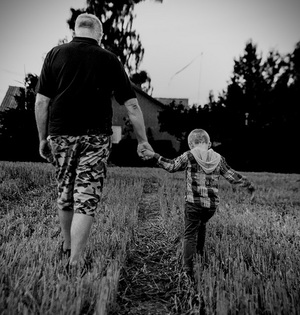 The Apostle Paul once said, “Prove all things; hold fast that which is good” (1 Thessalonians 5:21). So I decided to do just that. My post subject for last week supplied the trigger event. Using the death of my mother’s cat as my trigger event, I fasted for half a day. What I experienced changed my view of fasting. Although I didn’t have a full fast, I did feel closer to the Spirit. I felt more of the love my Heavenly Father has for me and all of His creations. I felt a strengthening power flow through me that increased my faith. And my confidence that God is still in control grew as well. I’m not saying that I’ll be fasting every time an animal dies. And again, there are scriptures that support our common practice of fasting in order to elicit a response. But I may be fasting more often as a response rather than as a means to elicit a response. Given the many trigger events that singles life and just life in general provide, I’ll take all the fortification I can get. 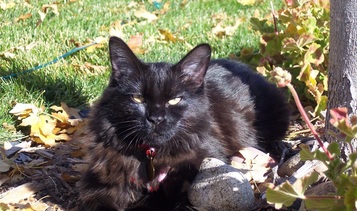 Two days ago my mother’s cat died. And it affected me more than I thought it would. It’s been almost a year since my own beloved Tashi passed away. That passing shocked me. My dear friend of four years was suddenly gone, and with her went a piece of my heart. God had led me to Tashi to help me through a very difficult time. So when she died suddenly, her passing hit me very hard. And her death wasn’t peaceful either. She choked on her own vomit. Tashi always had a vomiting problem. When I adopted her, she vomited 2-3 times every single day. Yet the vet could find nothing wrong with her. Aside from the vomiting, Tashi showed every sign of being a very healthy, happy cat. 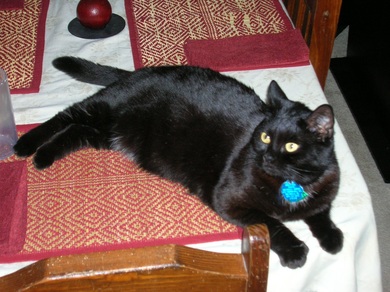 After a few months of cleaning after her, I questioned keeping her. It was obvious why she was in the pound. Who would want the burden of constantly cleaning up after this animal? Not I. But I’d made a commitment when I adopted the animal, and I intended to follow through. I worked with Tashi for 11 months before she would then vomit only once every few days. Considering her starting point when I adopted her, that’s quite the improvement. Yet in the end it proved the death of her. Grief paralyzed me for the first couple of days. It was so hard waking up at night and not see her curled up on the bed. I wanted to feel her furry face in mine in the morning checking to see if I was awake yet. I would imagine I saw her sitting in her favorite window even though she wasn’t there. I longed to see her look at me with anticipation as I came in the door. After almost a year of separation, I still miss her. At the time I couldn’t make sense of it. Why would the Lord bless me only to let that same blessing leave me so suddenly? Struggling with questions Some believe everything happens for a reason. I’m not one of those people. I believe sometimes a guiding Hand does prompt events in our lives. But I also believe that other times there’s no rhyme or reason. Things just happen. It’s part of living in a fallen world. Yet the passing of my mother’s cat had me wondering. A few days ago the cat began vomiting, much like my Tashi did. Then she stopped eating and drank very little. The vet said something had entered her kidneys and very quickly did a great deal of damage. My mother had two options: She could hope a hospital stay would clean out the cat’s system, or she could put the cat down. This cat had lived nine years, and given the current state of her kidneys, it wasn’t clear how much longer she would live even if the hospital stay worked. After some consideration, my mother decided to end the cat’s life. The vet ended the cat’s life by lethal injection. Yesterday we had the funeral. My father buried the animal in his back yard, not far from a bush under which the cat liked to lie on warm, sunny days. How appropriate. It’s also on the end of the yard opposite Tashi’s grave. My mother’s cat never liked Tashi, so we always kept them apart. Now even in death we still keep them separated. Are events like these part of some grand master plan? Does everything really happen for a reason? Or is this just the result of living in a fallen world in which bad things just happen? Lift where you stand  I’ll let you find your own answers. I’m fine with mine. What matters more is that God will always be there to support us. He even prepares the way for support to come to us. We are that way. All we need to do is lift where we stand. Then we can watch God perform miracles. Having lost a beloved animal, I can support my mother as she experiences her own encounter with that grief. Perhaps God allowed my Tashi to die last year so I could better support my mother now. My mother is almost addicted to mango smoothies, so the night her cat died I bought her a mango smoothie. It wasn’t much in itself, but it was a simple gesture that communicated my love and concern for her. I know I’ll need to offer more support in the coming days. And as I use my own negative experience to bring goodness into the life of someone I love, I know with more certainty that God can take all the awful situations in my life and turn them into jewels. The Spirit of the Lord God is upon me; because the Lord hath anointed me to preach good tidings unto the meek; he hath sent me to bind up the brokenhearted, to proclaim liberty to the captives, and the opening of the prison to them that are bound;  Last week I extolled surrendering to love. Need a refresher? Go get one. I’ll wait right here for you. Habit governs most of what we do on a daily basis. It’s how we’re designed to function. And usually it works very well. But sometimes habits obstruct our progress. To grow, we need to leave our comfort zones. In those moments, habits designed to keep us “safe” hinder more than help. Many singles habitually embrace the attitudes of the activity club (“I’m just here to have fun”) and the dating forum (“I’m looking for someone to marry”). These attitudes — expressed in habits directing how we interact with others — prevent us from transforming singles groups into the support networks they should be. And that means the needs of many go unmet.  That's not the path of love. How do you get on that train? First, recognize what habits steer you away from the path of love. Then replace those bad habits with better ones designed to keep you on the path of love. What habits steer us away from love? Here’s three examples common amongst singles. Who you talk to It’s human nature to associate only with those we like. Yet the path of love, often uncomfortable, beckons us to associate with those we don’t like. The Savior taught this very principle in the Sermon on the Mount. For if ye love them which love you, what reward have ye? do not even the publicans the same? Then follows this verse: Be ye therefore perfect, even as your Father which is in heaven is perfect. (Matthew 5:48) An alternate Greek translation of perfect is whole or complete. In other words, we aren’t really complete unless we offer fellowship to everyone. This is the path of love. Too often we singles have more concern about our own agendas. We don’t want to give others reason to think they interest us romantically when they don’t. When such attitudes become encoded in habits, they provide automated responses that steer us away from the path of love. If you recognize this habit in yourself, embrace a different habit. Consciously choose to meet new people and help them feel welcome. Yes, even if that might create difficulty for you later. Where you sit  Take a look around in church on Sunday. Most people tend to sit in the same place week after week. We singles tend to do likewise, and not just at church. Whenever we sit in groups in any context, we have habits much like the ones that guide our selection in who we talk to. We concern ourselves habitually with what others will think. And yet by not following the path of love, by leaving those who sit alone to sit alone, we inadvertently send the message that they are alone. Again, the Lord’s teachings apply. The path of love invites us to include others. Including some people will be very uncomfortable. Yet we can’t really be whole or complete unless we seek to include everyone. Nothing quite says “You belong” like sitting next to someone. Let’s consciously choose to include those sitting by themselves. What if everyone embraced such an attitude? Imagine the unity and support we’d have if only we all surrendered to love! Who you date  Think the first two were hard? You better buckle up! The path of love invites us to be more inclusive in who we date. We LDS singles tend to place too many filters too soon in the process. We make the front part way more serious than it should be. And that attitude — often encoded in habit! — closes us off from the very opportunities we say we want. Correctly understood, dating comes in two flavors: casual dating and serious dating. Casual dating is just that — casual! It involves multiple partners and low levels of commitment that expire with the date activity. Yet too often we bung everything by skipping casual and going straight to serious. We often make things so serious that we don’t even start. What results from jumbling the process? Many people stay single unnecessarily, and many others have less than satisfying marriages. I’m not suggesting we abandon standards when dating. I’m suggesting we stop making the front end so serious. There’s a time and place for serious. It’s called serious dating. And that comes after friendship and casual dating. Dating becomes much easier when you abandon the faulty assumptions and attitudes that hold many back.
But seek ye first the kingdom of God, and his righteousness; and all these things shall be added unto you. |
Author
Howdy! I'm Lance, host of Joy in the Journey Radio. I've been blogging about LDS singles life since 2012, and since 2018 I've been producing a weekly Internet radio show and podcast to help LDS singles have more joy in their journey and bring all Latter-day Saints together. Let's engage a conversation that will increase the faith of LDS singles and bring singles and marrieds together in a true unity of the faith.
Comment
Joy in the Journey Radio encourages the free discussion of ideas but reserves the right to remove and/or block comments which do not conform to LDS standards.
Donate
Joy in the Journey Radio offers many free resources to help LDS singles everywhere, but it certainly isn't free! Help Joy in the Journey Radio in its mission to improve the lives of LDS singles by donating today.
Posts by Month
December 2022
Categories
All
|
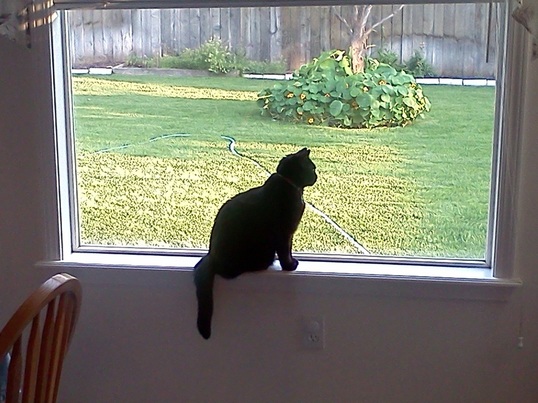


 RSS Feed
RSS Feed